Summary: Dubai’s intense 45°C+ summer heat combined with pervasive dust and high humidity critically overloads apartment ACs, leading to poor cooling despite constant running. This common issue stems from the extreme environment drastically reducing efficiency, which then exacerbates crucial maintenance failures like clogged filters, dirty coils, and refrigerant leaks. These problems restrict airflow, trap heat, and strain components, causing systems to fail. Regular, non-negotiable AC maintenance, including frequent filter changes and professional coil cleaning, is vital for your unit to survive Dubai’s brutal summer.
The struggle is familiar to every Dubai resident: when outdoor temperatures soar past 45°C (113°F) in July and August, your apartment air conditioner suddenly seems to lose its battle against the heat. It runs constantly, the electricity bill spikes, but the air is just not cold enough.
This common frustration isn’t always a sign of a completely broken unit. Instead, it’s usually a result of Dubai’s extreme climate pushing the system to its absolute limit, compounded by maintenance issues that are accelerated by the harsh environment.
Here is a complete, detailed breakdown of the reasons your AC struggles to cool properly during Dubai’s peak summer months.
1. The Overwhelming Environmental Factors
Dubai’s unique climate creates a “perfect storm” that aggressively challenges any cooling system:
Extreme Ambient Heat
The outdoor unit (condenser) has to reject heat into an already scorching environment. When the outdoor temperature is extremely high, the AC’s cooling efficiency naturally and drastically decreases. This means it takes longer to cool your home, and the system struggles to maintain a low temperature, especially during the hottest part of the day.
High Dust and Sand
Airborne desert sand and dust are relentless. They rapidly clog filters and coat the condenser coils of the outdoor unit. This coating prevents the unit from efficiently releasing heat, essentially “suffocating” the system and forcing it to work harder while delivering less cool air. The combination of heat and dust dramatically accelerates wear and tear.
Coastal Humidity
High humidity (especially near the coast) forces the AC to expend significant energy on dehumidification *before* it can cool the air. This added workload strains the unit and reduces the overall cooling capacity, often leaving the apartment feeling clammy and less comfortable even when the thermostat temperature seems adequate.
Constant Operation Stress
Running 18 to 24 hours a day during summer causes accelerated wear and tear on critical components like motors, compressors, and electrical parts compared to AC units in milder climates. This continuous stress increases the likelihood of an untimely breakdown.
2. The Critical Maintenance-Related Failures
In a less extreme climate, these problems might be minor issues. In Dubai, they can cause a complete cooling failure because the unit has no margin for error when fighting the intense heat.
Restricted Airflow: The Top Culprit
- Dirty Air Filters: Clogged filters restrict airflow across the indoor coil. This reduces cooling, strains the fan motor, and can even cause the evaporator coil to freeze over, which completely halts the cooling process.
- Blocked Condenser Coils (Outdoor Unit): When outdoor coils are caked in dirt, heat is trapped, the refrigerant temperature skyrockets, and the compressor overheats, severely limiting cooling performance.
- Frozen Evaporator Coils: A frozen indoor coil occurs due to critically restricted airflow or low refrigerant. Ice buildup completely blocks the remaining airflow and brings cooling to a halt.
System and Component Failures
- Low Refrigerant Levels (Leaks): If your refrigerant is low, the system cannot effectively absorb heat from your apartment. This results in air that blows “cool” but never truly “cold.” This issue also puts the expensive compressor at high risk of burnout.
- Clogged Condensate Drain Lines: The high humidity means the AC extracts a large amount of water. If the drain pipe is blocked with sludge, water can back up into the unit, leading to leaks, mold growth, and component damage.
- Failing Electrical Components: Continuous, high-temperature operation often causes parts like the **capacitors** (which start the motors) and contactors to degrade and fail. A failed capacitor means the fan or compressor won’t start, and the AC stops cooling entirely.
The Solution: Prevention is Non-Negotiable
In Dubai, AC maintenance is not an option; it is an essential seasonal requirement. Regular servicing is the only way to ensure your system can cope with the extreme summer load.
| Maintenance Action | Recommended Frequency in Dubai | Why It Matters |
|---|---|---|
| Clean/Replace Air Filters | Monthly during summer (or every 3-4 weeks). | Ensures maximum airflow, maintaining efficiency and preventing coil freezing. |
| Full AC Service (Coil Cleaning) | Twice per year (once before and once after peak summer). | Professional cleaning of both indoor and outdoor coils is vital to restore heat exchange efficiency. |
| Refrigerant and Leak Check | Annually by a certified technician. | Catches small leaks early, preventing expensive compressor failure down the line. |
If your apartment AC is struggling during peak summer, the first step should always be to ensure the filters are clean. If that doesn’t solve the problem, don’t wait—a professional check is needed immediately, as the system is struggling and could be headed for a major breakdown.
Need Immediate AC Repair or Maintenance?
Contact a trusted Z0Deg AC contractor for Dubai to get your system inspected and restored before the heat leads to a complete breakdown.



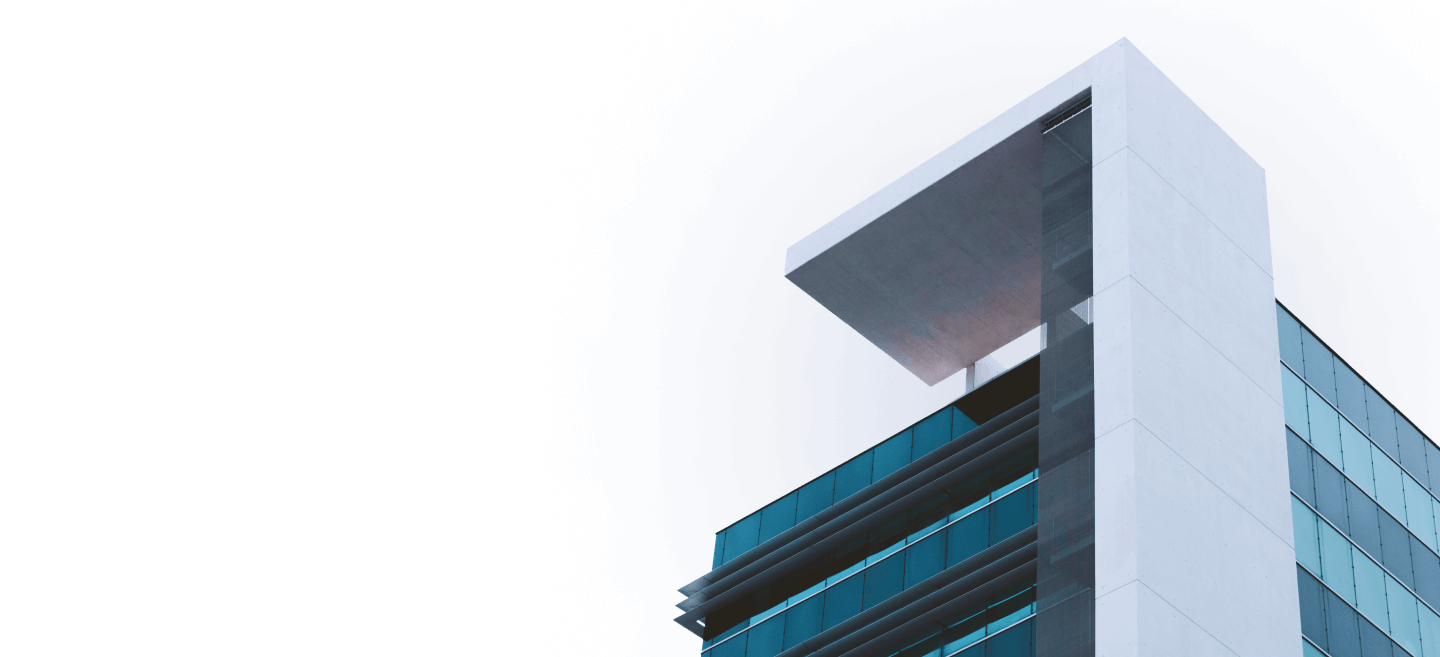
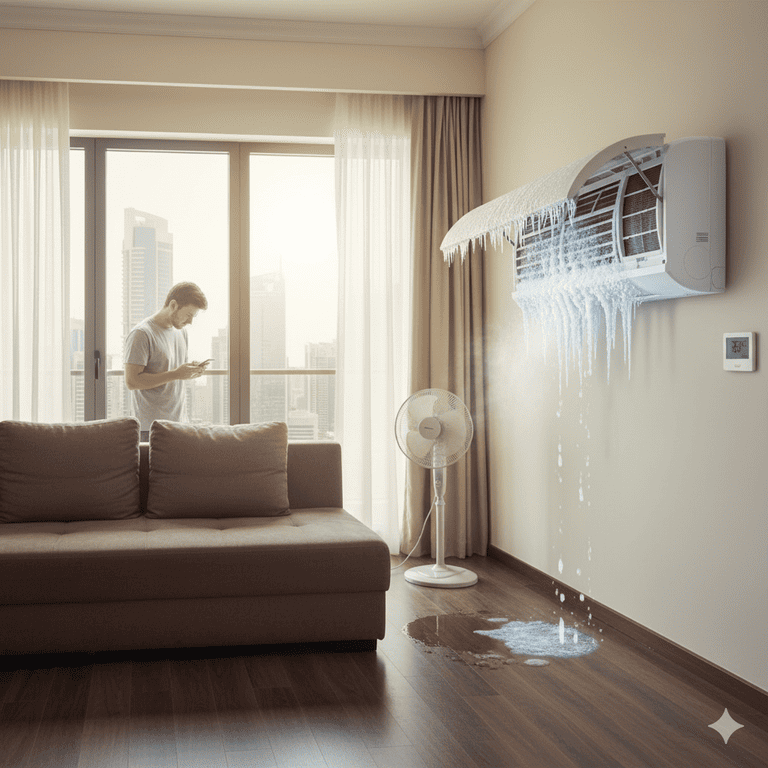
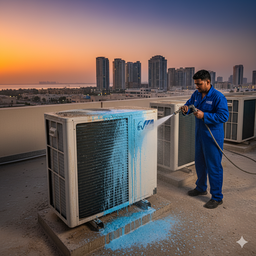
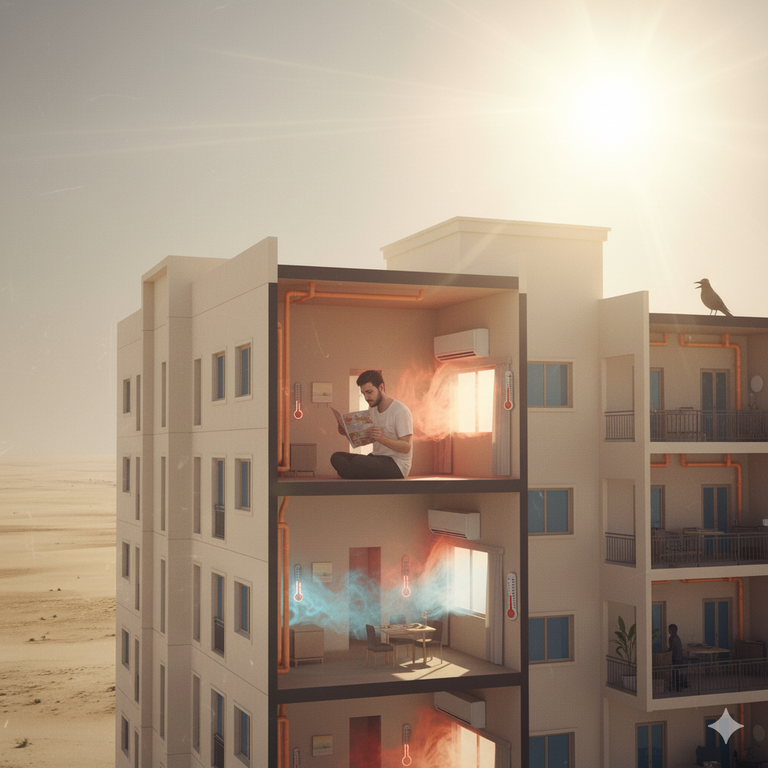
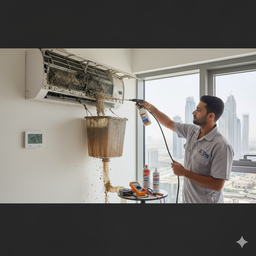
Leave a Reply